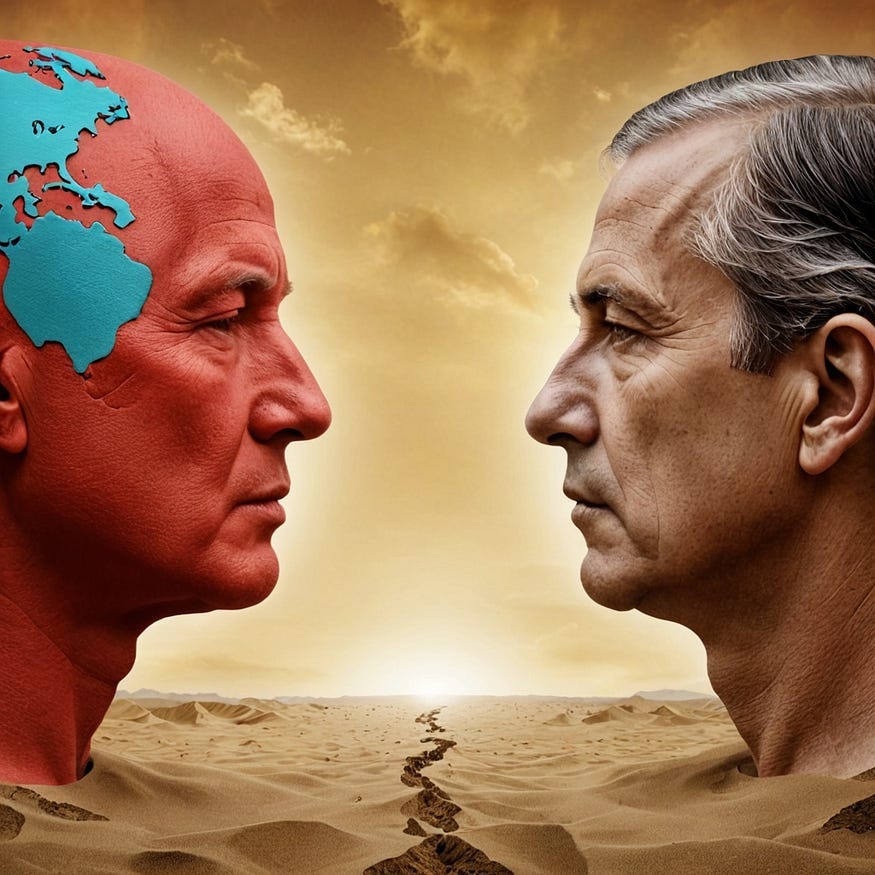Russia’s New Sanctuary Policy: A Step Towards Global Ideological Polarization?
As Russia Opens Its Doors to Conservative “Refugees,” Is the World Heading Towards a New Form of Globalism Where Ideological Affinity Defines Alliances?

Introduction: A New Sanctuary for Conservative Values
In a world increasingly divided by cultural and ideological lines, Russia has taken a significant step that could reshape global dynamics. On August 19, 2024, Russian President Vladimir Putin signed a decree that facilitates the relocation of individuals who support traditional values and oppose what he terms “destructive neoliberal ideas.” This policy, which eases the process for these individuals to obtain Russian residence permits, is not just a domestic initiative but a strategic move with global implications.
By offering sanctuary to those who reject policies like gender change, LGBTQ+ rights, and secular criticism of traditional religions, Russia positions itself as a defender of conservative values on the world stage. This decree allows applicants to bypass the usual requirements, such as proving proficiency in Russian or understanding Russian laws, if they can demonstrate that their opposition to the policies of their home countries is based on an alignment with traditional Russian spiritual and moral values.
But what does this mean for the world? Is this just another chapter in Russia’s long-standing conservative rhetoric, or does it signify a deeper, more profound shift in global alliances? Could we be witnessing the dawn of a new form of globalism — one where ideological affinity, rather than traditional geopolitical or economic considerations, defines alliances and conflicts?
Russia’s Intent: A Defender of Traditional Values
Russia’s new policy is deeply rooted in the country’s broader strategy to counter Western liberalism and assert its role as a global champion of conservative values. This strategy has been unfolding for over a decade, marked by legislative actions such as the 2013 ban on the promotion of LGBTQ+ values and the 2022 update to this law, which further entrenched conservative policies. The 2023 classification of the international LGBTQ+ movement as an extremist organization underscored Russia’s commitment to this ideological battle.
By attracting individuals from across the globe who share its conservative values, Russia is not only bolstering domestic support but also attempting to create a global network of like-minded communities. These individuals, who feel alienated in their home countries due to the dominance of neoliberal ideologies, may find in Russia a safe haven — both culturally and politically.
This policy also signals Russia’s intent to lead a global conservative movement. By offering refuge to those who oppose the liberal policies of their governments, Russia is positioning itself as a beacon for those who resist what they perceive as the moral decline associated with Western neoliberalism.
The Broader Implications: A World Divided by Ideology
Russia’s sanctuary policy is more than a domestic maneuver; it is a deliberate challenge to the liberal order that dominates much of the Western world. It raises a critical question: Is the world moving towards a new form of globalism, where ideological affinity rather than traditional geopolitical or economic considerations defines alliances and conflicts?
The Emergence of Bipolar Globalism
The global response to Russia’s policy could accelerate the formation of two main ideological blocs:
The Conservative Bloc: Countries that share Russia’s emphasis on traditional values, such as certain Eastern European, Asian, and Middle Eastern nations, could form a conservative bloc. This bloc would prioritize nationalism, religious conservatism, and resistance to global liberal norms.
The Liberal Bloc: On the opposite end, Western nations, led by the United States and the European Union, might consolidate into a liberal bloc. This bloc would continue to advocate for progressive policies, including gender equality, LGBTQ+ rights, and the promotion of secular governance.
Cultural and Political Realignments
As these ideological blocs solidify, the global political landscape could see significant realignments. Countries may increasingly choose their allies based on shared cultural and ideological values rather than on strategic economic or geopolitical interests. This shift could impact international organizations, alliances, and even global trade, as nations seek to align themselves with like-minded partners.
Strain on Global Institutions
The increasing polarization could strain global institutions like the United Nations, World Trade Organization, and others that rely on cooperation among diverse member states. The difficulty in reaching consensus on global issues — such as climate change, human rights, and international security — could grow as countries diverge in their fundamental values.
Impact on Global Stability
While this ideological division might lead to increased global tensions, it could also create a new balance of power, reminiscent of the Cold War era. During that time, mutual deterrence between the U.S. and the Soviet Union prevented large-scale conflicts, even as the two superpowers engaged in proxy wars and ideological competition. A similar dynamic could emerge in this new ideological divide, where conservative and liberal blocs engage in cultural, political, and economic competition without direct confrontation.
Conclusion: The Future of Global Alliances
Russia’s new policy is not an isolated event but a reflection of a broader global trend towards ideological polarization. As nations increasingly align themselves based on shared values rather than traditional geopolitical interests, the world could be moving towards a new form of globalism — one that is defined by ideological affinity.
In this emerging world order, the battle for influence will not be fought solely with military might or economic power but with cultural and ideological narratives. Russia’s sanctuary policy is a bold move in this global contest, signaling its intent to lead the conservative bloc and challenge the liberal values that dominate much of the West.
As we move forward, the question remains: Will this ideological polarization lead to greater global instability, or will it create a new balance of power that stabilizes international relations in a deeply divided world? Only time will tell, but one thing is clear — Russia’s new policy is a significant step towards a world where ideological affinity could redefine global alliances and conflicts.

